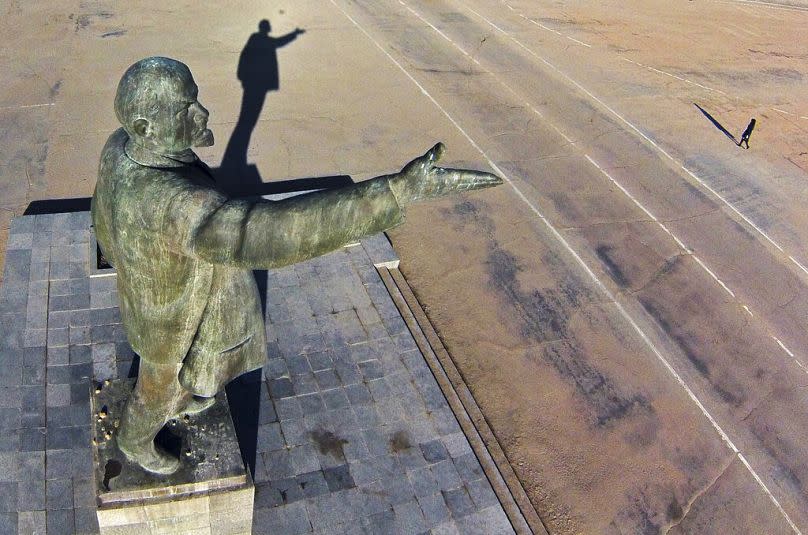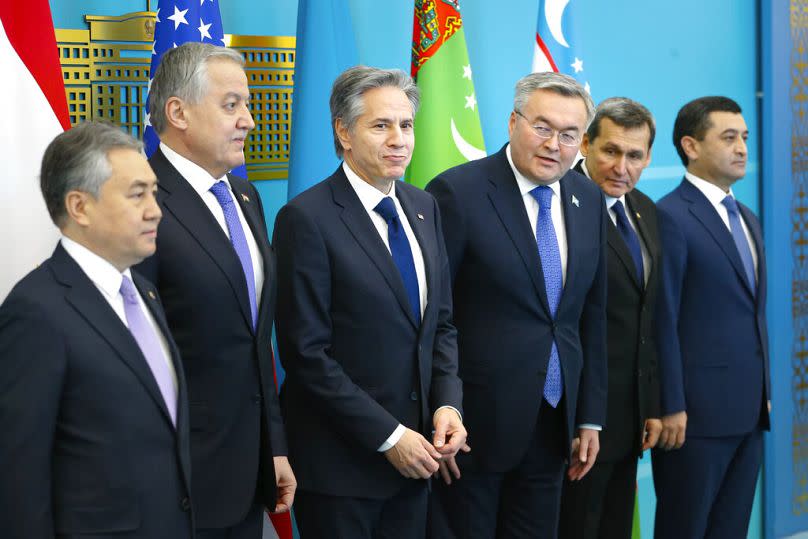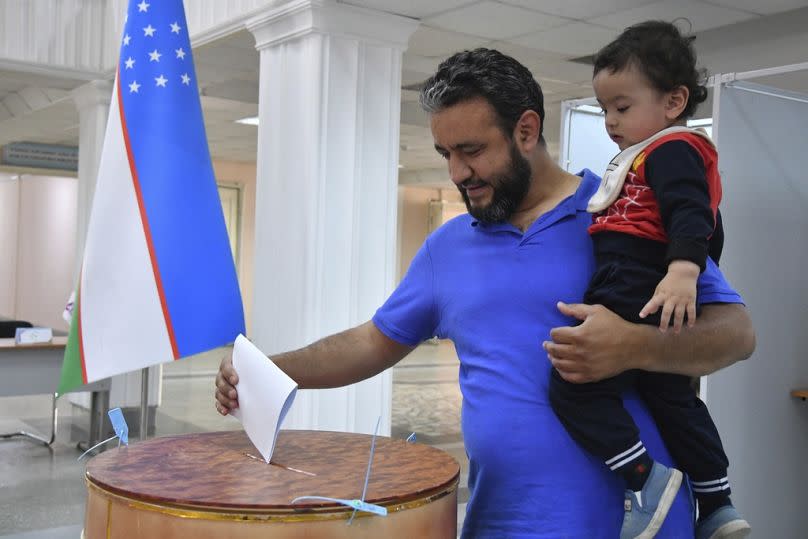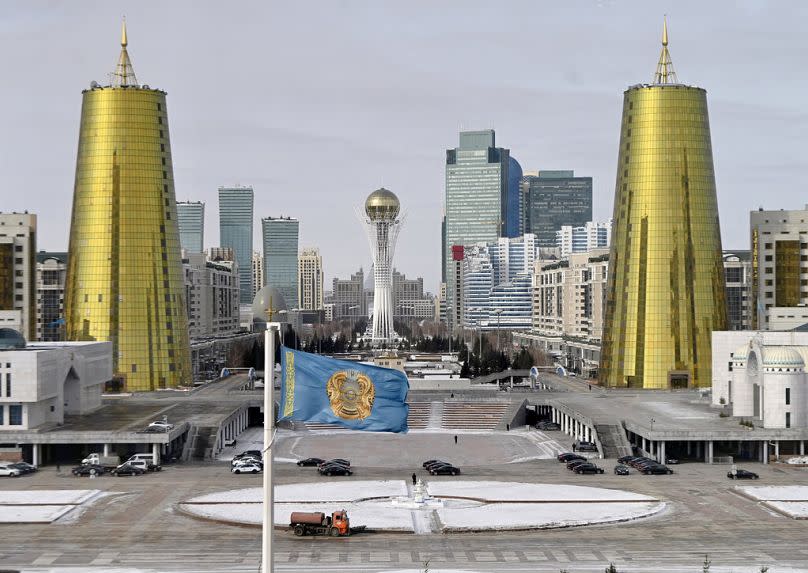Can Central Asia be the link that will bring together the East and the West?

Though they have been little more than afterthoughts in global political and economic affairs after the dissolution of the Soviet Union, the countries in Central Asia are now emerging in a region of significant importance, which the world can no longer afford to disregard.
The five “stans” that make up the region – Kazakhstan, Uzbekistan, Kyrgyzstan, Tajikistan and Turkmenistan – are currently experiencing a surge in economic growth and political reforms, thanks to their strategically important geographical position at the crossroads of Asia and Europe.
Once again, these countries are aiming to become the so-called “middle corridor”, or the more popularly branded ”New Silk Road”, that has the potential to bridge gaps between the East and West through trade.
Region's perception is rapidly changing
For years, the region was ignored by much of the international community, which had little interest in engaging with countries it considered to be under Russia’s sphere of influence.
Indeed, even among many in the region, Central Asia is still euphemistically considered Russia’s “backyard”.

However, for a number of reasons, this perception is rapidly changing amidst the war in Ukraine and the changing geopolitical landscape in Europe and Asia.
The conflict in Ukraine has opened the eyes of many countries that looked to Russia as their primary political and economic ally, and believed inaction, or more officially, neutrality, could help them avoid political consequences.
But the tides in the region are shifting, and it is becoming evident that association with Russia and its war activities can bring with it potential consequences to a country’s international standing and economy.
World leaders rushing to leave an impression
More apparent than increasing leverage from the West, China’s rise has also given Central Asia new importance, as the region is a key transit point for China's Belt and Road Initiative.
The EU, too, increased its effort in trying to appeal to Central Asian nations, and high-level officials from Europe have never boarded so many flights to the region’s capitals as they are doing now.

For example, in the past months, Kazakhstan was visited by Xi Jinping, Anthony Blinken, Ursula von der Leyen and many other world leaders who rushed one after another to discuss bilateral relations and new opportunities for cooperation.
Some successes of the diplomatic push can already be seen. Germany, for example, has recently agreed with Kazakhstan to transport additional 1.2 million tonnes of crude oil in 2023 as the country wants to diversify its oil supplies further away from Russia.
It's about more than just exchanging goods
However, Central Asia should not only be seen as a frontier transit point for goods.
Despite the region being rich in natural resources, including oil, gas, and critical minerals, it is also home to a rapidly growing young, educated, and multilingual population which is hungry for economic growth and development.
Tashkent International Film Festival: Showcasing the best of Central Asian cinema
Astana Economic Forum: Sharing ideas for an urban, digital future that’s focused on people
If one walks around central Astana or Tashkent today, apart from large construction sites, dozens of recently opened IT and English schools can be found, not to mention a number of international schools in the liberal arts.

Young people are eager to learn additional languages to the two or three they can already speak and acquire new skills that can make them competitive in the growing internationalised market that the region is becoming a part of.
The recent flight to Central Asia of multinational companies that can no longer do business in Russia creates a fertile ground for such quality employment.
A balancing act between the East and the West
What could this mean for Central Asia’s future? Firstly, it means that the region will play an increasingly important role in global affairs, especially in trade and infrastructural connectivity between Europe and Asia.
As the world becomes more interconnected, Central Asia's location at the crossroads of some of the most important trading routes will make it a key player in the global economy.
For countries like Kazakhstan and Uzbekistan, which are leading the way in terms of reforms, economic growth and political stability, the challenge will be to continue to build on their successes.

This year, Kazakhstan is launching the inaugural Astana International Forum that will take place between 8 and 9 June to accompany its successful reforms and help increase its international prestige.
This two-day symposium is envisioned as a global platform for dialogue that gives a voice to new actors whose ideas and opinions will be important in an era of renewed great power competition.
Additionally, it gives Kazakhstan an opportunity to capitalise on its successful balancing act between the East and West.
Betting on renewables: can Kazakhstan become carbon neutral by 2060?
Is China ready to replace Russian influence in Central Asia?
It is one of the few countries in the world which has a privileged position to maintain constructive relations with all sides of the globe, making it a perfect environment to host truly global and open discussions on some of the world’s most pressing issues of today.
Like Kazakhstan, Uzbekistan has launched similar initiatives, and in doing so, the ancient city of Samarkand has become a global hub for world leaders and conferences.
Only recently, the city hosted the 22nd edition of the Shanghai Cooperation Organisation as well as the EU-Central Asia Connectivity Conference, showing how open the country has become to engaging so actively with both sides of the spectrum.
Future of openness, freedom, and prosperity
The political and economic opening up of Central Asia is something that should be welcomed by all.
Uzbekistan: The Central Asian country is opening up to the world, here’s why you should visit
The EU must protect its investment in Kyrgyz democracy | View
While still maintaining strategic ties to Russia, Central Asia has been reaching out to larger members of the global community.
This gives the region the potential to become a trusted partner in a part of the world that is becoming increasingly internationalised.
As the war in Ukraine continues, the middle corridor will become one of the most obvious routes for goods that previously travelled through Russia.
It will be in the region’s best interest to capitalise on this and ensure that its future becomes one of openness, freedom, and prosperity.
Dr Michael Rossi currently serves as Visiting Instructor in the Department of International Relations at Webster University Tashkent, and is also associated with Rutgers University and Long Island University Brooklyn.
At Euronews, we believe all views matter. Contact us at view@euronews.com to send pitches or submissions and be part of the conversation.

 Yahoo Sport
Yahoo Sport 





































